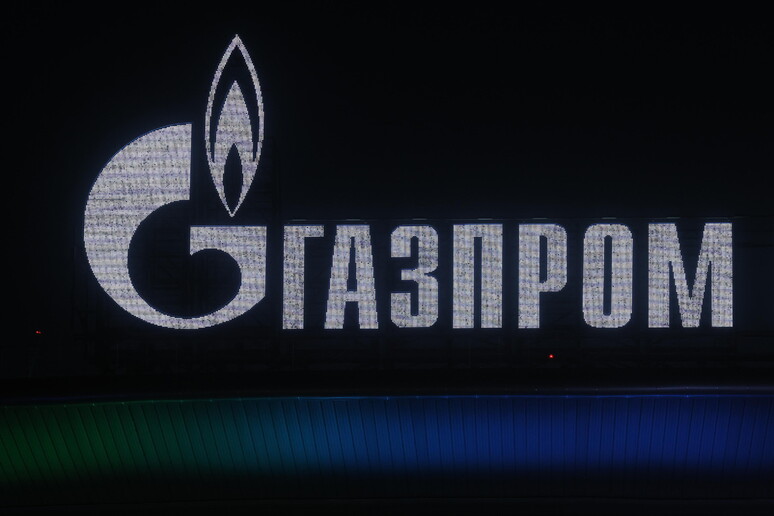With new legislation, the EU
Commission wants to finally cut ties with Russian energy
supplies. But are those plans just a path towards new
dependencies?
For decades, energy imported from Russia was everywhere across
Europe: from heating flats in Slovakia to powering German
industry. Voices who warned that this dependency on oil, gas and
coal from one supplier could be risky were in a minority.
A first blow to that energy honeymoon came with Russia's
annexation of Crimea in 2014, but the dangers of that situation
only became clear to most Europeans with the invasion of Ukraine
in 2022. Since then, the European Union has struggled to wean
itself from its dependency from Russian fossil fuels - and to
overcome internal obstruction from some of its member states
towards this policy.
When the full-scale invasion began, the Union sanctioned Russia
and took steps to reduce imports of coal and oil. Now gas has
come into the focus. As more Liquified Natural Gas (LNG) becomes
available globally, the EU plans to replace natural gas from
Russia with LNG - if possible from other sources than the
Kremlin.
Earlier this week, the EU Commission presented its REPower EU
Roadmap. It foresees a "coordinated and stepwise phase-out of
Russian energy supplies" by 2027.
A secondary aim of the plan is to strengthen the bloc's pivot
towards renewables. "We do this to preserve our security. But it
is also an important step towards becoming energy independent.
Producing our own clean affordable energy instead of importing
expensive fossil fuels," Energy Commissioner Dan J›rgensen said.
But achieving these goals may be easier said than done.
From Moscow with a big price tag
According to the Commission, Russian gas imports dropped from a
share of 45 percent in 2021 to 19 percent in 2024. Gas imports
via pipeline have fallen sharply, but several EU countries have
increased LNG purchases.
LNG is transported via sea, unloaded at ports, regasified, and
then injected into the European network.
There is a total ban on coal imports. Oil imports from Russia
amount to 3 percent of the total, from 27 percent in early 2022.
Yet - according to estimates by the Kpler data consultancy,
Russian gas accounted for 9 percent of EU consumption from
January to April 2025. It remains among the top three suppliers
for gas in total with Norway and Algeria.
And the Ember global energy think tank said imports rose in 2024
year-on-year by 18 percent, mainly due to increased imports into
Czechia, Italy and France.
According to Czech analyst Jiří Tyleček, the increase in Russian
gas imports underlines the persistent problems in European
energy security. "Business is very pragmatic and importers do
not care too much whether or not taking Russian gas is
politically problematic. Importers are economically rational,
and unless there are legal obstacles, such as an embargo, then
they focus on importing cheaper Russian gas. This approach is
supported by growing demand in Europe," Tylecek said.
The Roadmap ahead
The Commission now wants to end all Russian gas imports by the
end of 2027. To that end, it plans to present legislation next
month. Oil and nuclear fuel are also being targeted. Russia is a
major supplier of uranium. Additionally, several EU members
operate Russian-built reactors.
"We don't want to be under the control of [Russian President
Vladimir] Putin," J›rgensen said after setting out the measures.
The Commissioner noted that the bloc had spent more buying
fossil fuels from Russia than on aid to Ukraine since 2022.
The legislation will have to be approved by the EU Parliament as
well the member states. The Commission does not need all 27
member states to approve the import bans, which require only the
backing from a weighted majority of 15 countries.
Hungary and Slovakia, who entertain close ties with Moscow, have
already blasted the plans. "I refuse to commit economic suicide;
it is simply economic suicide to proceed with the idea that
neither gas, nor nuclear, nor oil, everything must end just
because a new iron curtain is being erected between the Western
world and possibly the Russian Federation and other countries,"
Slovak Premier Robert Fico said, while stressing that he
recognised the goal of reducing energy dependence.
J›rgensen said the Commission was willing to go it without
unanimity. But even if resistance from Hungary or Slovakia is
almost a given, headwinds may also come from other quarters, as
a number of member states rely on energy from Russia.
From East to West, and across the Atlantic
Countries such as Slovakia or Hungary remain dependent on
Russian fossil fuels - importing 80 percent of their oil from
Moscow for example. They are exempt from the sanctions package
on oil. At the end of 2024, Austria also got about 80 percent of
its gas from Russia. Deliveries stopped only when the transit
deal between Moscow and Kyiv ended later that year.
The Commission will also have to manage the increased dependence
of some countries on Russian LNG imports: according to the
International Energy Agency, three countries - Belgium, France,
and Spain - accounted for 85 percent of total Russian LNG
imports, with a portion being re-exported to the continent.
The bloc's economic heavyweights France and Germany have a big
stake in the shift away from Russian energy.
Before Russia's attack on Ukraine, Germany imported 55 percent
of its gas from Russia. Since then, the country has been working
on diversifying its energy imports and constructing LNG
terminals. Since Russia closed the Nord Stream 1 Pipeline in
2022, Germany imports its natural gas from Norway, Belgium and
the Netherlands. Germany gets LNG from other EU members, who in
turn import some of it from Russia.
ALL RIGHTS RESERVED © Copyright ANSA











